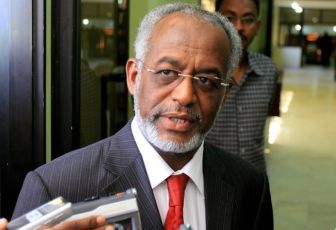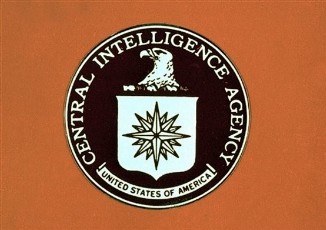Sudan hints it is willing to assist Libyan rebels
March 30, 2011 (KHARTOUM) – The Sudanese government suggested that it is prepared to provide assistance to the opposition in Libya which took arms last month in a bid to topple the regime of Muammar Gaddafi who came to power more than 41 years ago.

Sudan has expressed support to the NFZ and diplomats at the UN said that Khartoum secretly granted permission to coalition planes to use its airspace in its operations. However, Sudanese officials denied this report.
The Sudanese foreign minister Ali Karti told reporters in Qatar that president Omer Hassan Al-Bashir in his talks with Emir Hamad bin Khalifa Al-Thani that support to Darfur revolutionaries was not discussed in their talks today.
Karti was cited by Sudan official news agency (SUNA) as saying that support to the opposition based in Eastern Libya is of humanitarian nature.
However, the Sudanese top diplomat said that going beyond humanitarian assistance requires consultation with other countries.
Libyan rebels have lost ground to the military superior forces of Gaddafi despite extensive bombing by the coalition which has targeted air defenses, communication centers and ammunition depots. the opposition have called on the international community to supply arms and communication equipments to help battle government forces.
But Western nations are debating whether it is legal under the UNSC resolution to do so and if it would pose any problems in the future.
Today U.S. officials disclosed to Reuters that president Barack Obama has signed a secret order authorizing covert U.S. government support for rebel forces.
Obama signed the order, known as a presidential “finding”, within the last two or three weeks, according to government sources familiar with the matter.
Such findings are a principal form of presidential directive used to authorize secret operations by the Central Intelligence Agency. This is a necessary legal step before such action can take place but does not mean that it will.
 The CIA, which declined comment on the Obama authorization, has inserted small groups of clandestine operatives to gather intelligence for air strikes as part of a shadow force of Westerners that the United States hopes can help bleed Gaddafi’s military, The New York Times reported.
The CIA, which declined comment on the Obama authorization, has inserted small groups of clandestine operatives to gather intelligence for air strikes as part of a shadow force of Westerners that the United States hopes can help bleed Gaddafi’s military, The New York Times reported.
In addition to the CIA operatives, dozens of British special forces and MI6 intelligence officers are also working in Libya, the newspaper said.
People familiar with U.S. intelligence procedures said that Presidential covert action “findings” are normally crafted to provide broad authorization for a range of potential U.S. government actions to support a particular covert objective.
In order for specific operations to be carried out under the provisions of such a broad authorization — for example the delivery of cash or weapons to anti-Gaddafi forces — the White House also would have to give additional “permission” allowing such activities to proceed.
Sending in weapons would arguably violate an arms embargo on Libya by the U.N. Security Council imposed on Feb. 26, although British, U.S. and French officials have suggested there may be a loophole.
Getting a waiver would require the agreement of all 15 council members, which is unlikely at this stage. Diplomats say any countries that decided to arm the rebels would be unlikely to seek formal council approval.
U.S. officials also have said that Saudi Arabia and Qatar, whose leaders despise Gaddafi, have indicated a willingness to supply Libyan rebels with weapons.
BORDERS UNDER CONTROL
The Sudanese foreign minister said that shared borders with the unrest-whacked Libya are “totally under control” and being secured to prevent cross-border leakage of any arms or fighters, Sudan’s official news agency SUNA reported on Wednesday, citing foreign minister Ali Karti.
Sudan last month re-opened its borders with Libya after they remained closed for eight month due to political tension over Gaddafi’s harboring of rebel leader Khalil Ibrahim from the country’s western region of Darfur, where the Sudanese government is fighting an insurgency that broke out in 2003.
But Sudanese officials expressed concerns that opening the borders, which was meant to allow evacuation of Sudanese citizens fleeing the armed rebellion against Libyan leader Muammar Gaddafi, would create a breeding ground for the spread of arms from eastern Libya into the hands of rebel groups in Darfur.
Sudan’s defense minister Abdul Rahim Hessian announced last month said that a joint force from Sudan, Chad and the Central African Republic would cooperate on securing the borders with Libya in order to prevent spillover of the unrest.
(ST)

harry
Sudan hints it is willing to assist Libyan rebels
” you better be careful what you do to me, somebody else may do it to you.” R.Kelly & Sparkle.
Harry,